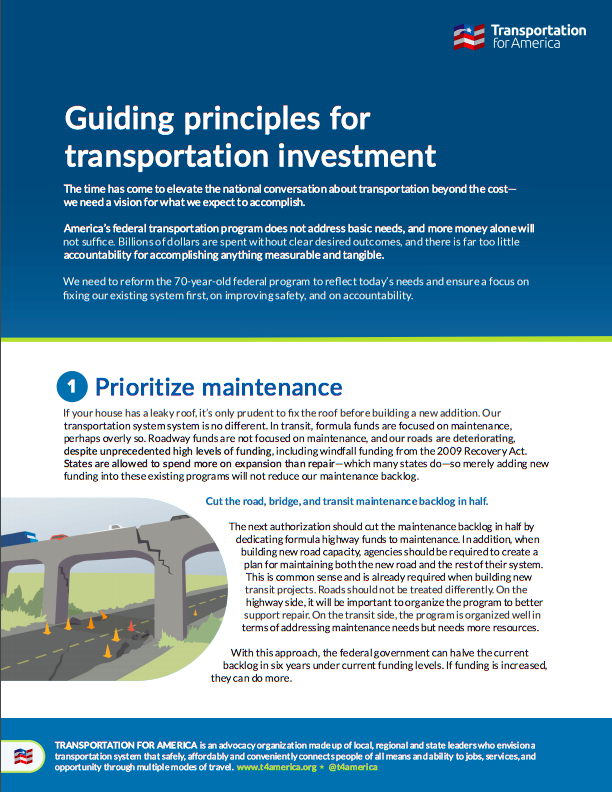“Voluntary safety assessments” for automated vehicles will result in more deaths
The National Transportation Safety Board agrees with us on automated vehicle safety: making safety assessments “voluntary” utterly fails to ensure public safety—and at least one person has already died as a result. The federal government’s current hands-off approach is incredibly unsafe for everyone except the bottom line of companies rushing to put unready driverless cars on the road.
Connecting people to jobs and services week: Hey Congress, we need your help to measure access
The Des Moines Area MPO wants to make a shift to award funding the transportation projects that do the most to improve the region’s resident’s access to jobs and services. But—like most MPOs and local governments across the country—its budget for the technology that makes this possible is small. It’s time for Congress to help local communities invest in the right projects.
Connecting people to jobs and services week: The legislative path to make access the goal of transportation investments
Measuring access—not vehicle speed—is smart policy. But local governments, states, and metropolitan planning organizations need support from the federal government to make this happen. It’s high time for Congress to make robust travel data and analysis tools available to transportation agencies.
Connecting people to jobs and services week: Rethinking shared mobility to prioritize access
Transportation is fundamentally about connecting people, but America’s transportation system focuses on moving cars instead. Madlyn McAuilffe from the New Urban Mobility Alliance wrote this guest post about the consequences of our misguided priorities and how we can get back to focusing on building places and transportation networks for people.
Connecting people to jobs and services week: What do destination access metrics look like in action?
Academics have long pointed to a metric called destination access—called by Transportation for America “access to jobs and services”—as a better decision guide than older, conventional measures that focus mainly on the speed of cars. But what does this new practice look like in real life, and where and how is it already being used?
To connect people to jobs and services, we need to measure what matters: people
Today we largely decide which transportation projects to build and where to build them based on how much delay vehicles experience, while entirely ignoring everyone not in a car in the first place. By ignoring walking, biking, or taking transit, we’re ignoring the impacts on everyone not using a car, particularly low-income persons, people of color, and older adults.
It’s time to define transportation success by what actually matters to people: getting where you need to go
For decades, transportation departments have been measuring the wrong thing: vehicle speed. Instead of measuring the speed of a car, we should measure the success of our transportation system by how many jobs and services people can access safely, quickly and affordably.
Connecting people to jobs and services week: How bad metrics lead to even worse decisions
When the top priority of our transportation investments is moving cars as fast as possible, the end product is streets that are wildly unsafe—as chronicled at length last week. But this focus on vehicle speed and throughput is the result of outdated metrics that also utterly fail to produce a transportation system that connects people to what they need every day.
TransportationCamp DC is definitely happening! Join us on Saturday, January 11th
Transportation for America is taking over TransportationCamp DC 2020, bringing back this popular annual event. We’re excited to host over 500 movers and shakers committed to transforming transportation. Will you be there?
The best thing about the Smart Cities Collaborative is the peer-learning, says Oakland’s Warren Logan
Next January marks the third cohort for T4America’s Smart Cities Collaborative. This time around, a steering committee of former Collaborative members is helping us shape the program. Warren Logan, the Policy Director of Mobility and Interagency Relations at Oakland Mayor’s Office, talked with us about what makes the Smart Cities Collaborative so valuable to city officials.





